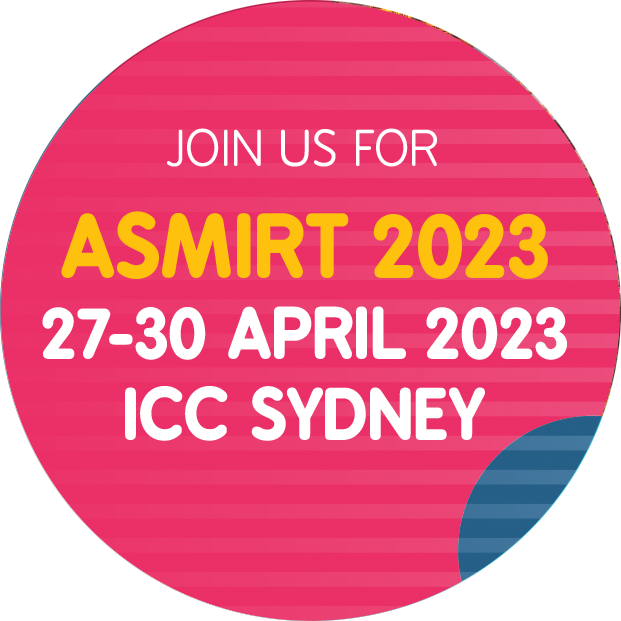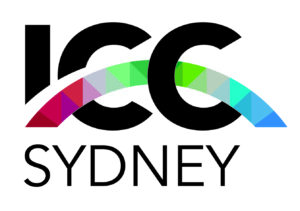You’re visiting Sydney for ASMIRT 2023. Have you been to Australia before?
No, I haven’t visited Australia before so I’m very excited about my first trip ‘down under’. I am looking forward to taking in some sights, such as the Harbour Bridge and Opera House, and enjoying the fantastic weather! The conference will also be a fantastic opportunity to meet – in person for the first time – colleagues based in Australia and New Zealand that I am working with on several research and book-writing projects, as well as a brilliant opportunity to make new connections.
In 2020 you were awarded a National Teaching Fellowship by Advance HE (UK). Can you tell us a little more about your work?
My National Teaching Fellowship was awarded in recognition of my impact on radiography education at the University of Derby. This was two-fold – commitment to simulation as the
cornerstone for radiography education, and creation of a research active community with the radiography team. My commitment to simulation stemmed from research I had carried out into student radiographers transition to their first clinical placements, and how difficult this transition was. Simulation was a method I advocated for, to smooth the transition and help students prepare for placement. It required significant capital investment (over £1 million to date) in new equipment such as a digital mobile X-ray machine, VR headsets, ultrasound haptics, reporting workstations and much more, all of which was paid for by a series of successful capital funding bids. It also required a clear strategy and implementation plan, due to the workload implications. I was very lucky to have Dr Naomi Shiner working in the team and to be able to use her expertise about simulation to lead the implementation.
The creation of a research active community required a longterm approach, with a significant shift in emphasis from being a team of lecturers to a team of academics. This required active
personal development planning for the whole team, embedding research as ‘business as usual’ in team meetings, supporting more junior colleagues via buddy systems (with more experienced researchers) and encouraging joint projects and publications. The change in the team over a five-year period was significant, with the number of publications, conference papers and scholarly outputs increasingly exponentially during that time. Alongside this, many of the team developed national and international research profiles, putting the University of Derby on the map in radiography research.
What are your current research projects and how will they make an impact?
My current projects are all linked to person-centred care. I am currently leading a large-scale international project working with colleagues in Australia, New Zealand and South Africa to replicate the research carried out by Professor Maryann Hardy and I to define informed measures of person-centred care in diagnostic radiography in the UK. We hope to complete this work in 2023 and publish in 2023–24.
I am also working on a project to evaluate the MOOC (massive open online course) that Maryann and I wrote based on our UK person-centred care project. This evaluation involves colleagues from the University of Suffolk and the University of Cumbria and aims to measure the impact of the MOOC on radiographers’ awareness of person-centred care.
I am also in the evaluation stage of an 18-month project that delivered training about organisational culture and personcentred care to colleagues working in health and social care services in the Midlands region of the UK. The project involved delivering a series of workshops about person-centred care, which were supported by online materials looking at organisational culture, change management and quality improvement. Learners were then asked to undertake a smallscale quality improvement project in their workplace that increased person-centred care. We are currently evaluating the impact of the training, and the small-scale projects, and hope to disseminate this in 2023.
You’re the Clinical Director at the Personalised Care Institute. What is personalised care, and can you tell us more about the work of this organisation?
Personalised care considers an individual’s strengths, needs and expectations to deliver the right care for them. It requires health and care professionals to reframe their focus from ‘what’s the matter with you’ to ‘what matters to you’. Personalised care was a key part of the NHS Long Term Plan (published in 2019), which has led to numerous initiatives and programs of work in
England, one of which is to ensure that 75,000 clinicians are trained in personalised care approaches by 2024.
The Personalised Care Institute sets the standards for education and training in personalised care and provides a range of free online courses, webinars and podcasts along with numerous
supporting resources. My role as Clinical Director is to provide clinical insight and review to inform our training materials, promote the Personalised Care Institute offer to clinical colleagues, and to engage with key stakeholders such as colleges, trade unions, departments of health and social care and more.
Excitement is building for ASMIRT 2023. What can delegates expect from your workshop ‘Embedding person-centred care in everyday practice’?
In my workshop I hope to empower delegates to ‘be the change’ they want to see in terms of person-centred practice. The workshop will help delegates to understand what ‘good’ person-centred care looks like within medical imaging and oncology services, consider enablers and blockers to personcentred care, and develop an action plan to embed personcentred
care in their day-to day practice. I hope delegates will leave feeling able to implement their action plan and see the difference person-centred approaches can make to patients, carers and themselves.
What are three things all medical radiation science practitioners can adopt within their everyday practice to positively impact the patient experience?
First – always start any interaction with “Hello my name is…” Introducing yourself and your role is key to establishing an equal relationship based on mutual dignity and respect. You can find out more about the ‘Hello my name is…’ campaign here: Hello My Name Is | A campaign for more compassionate care. Next – find out what matters to the person you are caring forby asking “What matters to you?” We can make assumptions about what is important to individuals based on our own values and beliefs, but when we ask ‘what matters to you’ it puts our patients’ values and beliefs at the centre of the episode of care. You can find out more about ‘what matters to you’ here: What matters to you? Finally – focus on comfort and care – this is what is most important to people using health and care services and makes a huge difference to their experience. Make sure you offer blankets, pillows, pads to ensure comfort. And remember to smile, maintain good eye contact and use open body language when communicating to show that you care.




Please feel free to contact us if you need more information
Phone: +613 9419 3336
Email: conferences@asmirt.org